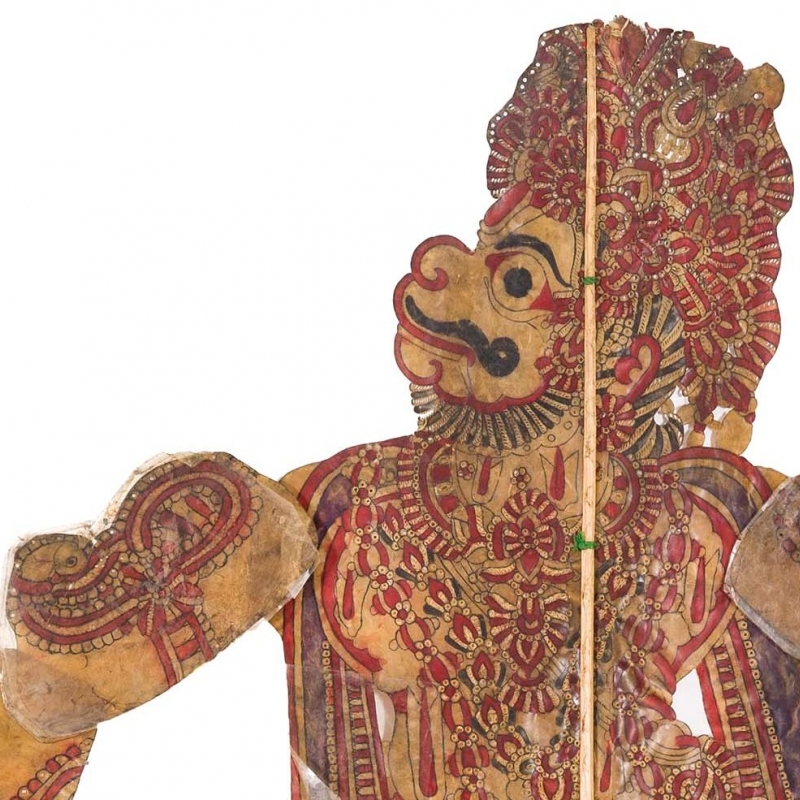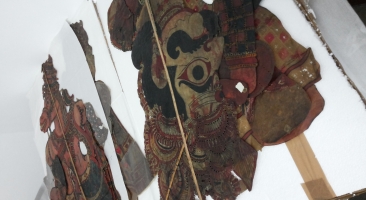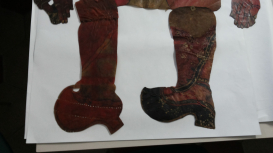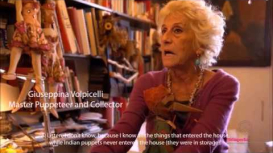Tholu bommalata (also spelled: tolu bommalata, or tholu bommalattam) is the Telugu shadow theatre tradition of Andhra Pradesh, Telangana and parts of Karnataka. Tholu bommalata literally means the dance (atta) of the leather (tholu) puppets (bommalu). Among the many traditions, tholu bommalata puppets are definitely the most peculiar for their large size. The core of the performance is represented by epic stories based on the Ramayana and to a lesser extent on the Mahabarata and some Vaishnava texts. The performance includes comedy skits and is accompanied by live music. On the stage the puppets appear behind a white curtain, and the audience sees their coloured shadows, not the actual puppets, enlivened by a light source. Tholu bommalata includes many different arts: painting, engraving, music, dance, acting, and storytelling. Despite the efforts of some puppeteer families, shadow theatre in India is an endangered traditional art. In order to prevent extinction of the refined techniques puppeteers try to keep the tradition alive by adapting their skills to the production of everyday objects such as lamps and home decorations, or of tourist craft items. In this context initiatives aimed at the preservation of tholu bommalata are particularly important in order to save a living tradition in great difficulty.
Tholu Bommalata: Telugu Shadow Puppet Theatre
Serena Autiero
Serena Autiero’s major fields of interest are: South Asian and Indian Ocean art and archaeology. She’s actively involved in the study of Indian heritage. Serena is founder and Vice-President of Vidyā - Arti e Culture dell'Asia, an Italian association dedicated to the study, dissemination and preservation of Asian cultures. She has been Assistant Professor of Art History at the Princess Noura Bint Abdulrahman University of Riyadh (Saudi Arabia). Serena received her PhD from the Sapienza University of Rome. She was a member of the Italian Archaeological Mission to Nepal, and of the Italian Archaeological Mission in the Swat Valley (Pakistan). From 2007 to 2014 she was a collaborator to the Educational Sector of the National Museum of Oriental Art 'G. Tucci' in Rome for several projects on the arts and archaeology of Asian countries.





